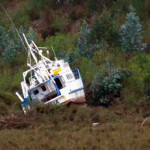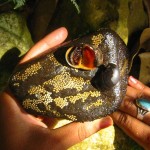On one hand you have the The Conservation Law Foundation asking the National Oceanic and
Atmospheric Administration to list the Atlantic wolffish under the
Endangered Species Act.
On the other, EU”s fisheries chief is recommending quota cuts for deep-sea fish, to be debated by EU
fisheries ministers in November, the European Commission wants the 2009
reductions to range up to 50 percent, followed by cuts that extend up to 100
percent in 2010. However, I second the sentiments of Ricardo Aguilar, Ocean’s Director of Research.
Reducing a quota for extremely vulnerable and depleted fish stocks is
not sufficient. For years, scientists have advised to stop these
fisheries completely – and this is the only adequate measure for these
threatened species. These fisheries must have zero catches immediately
for 2009…Oceana is concerned at the proposal’s lack of accordance with the
scientific advice provided for these species. For example, the TAC [Total Allowable Catch]
recommended for orange roughy has been delayed for one year and the
minimum landing size for red seabream has not been increased. The
organisation highlights the fact that TAC reductions proposed for the
remainder of these species and areas are not enough to stop the decline
of these fish stocks.
Will these efforts be too little too late?






Down to the very last fish?